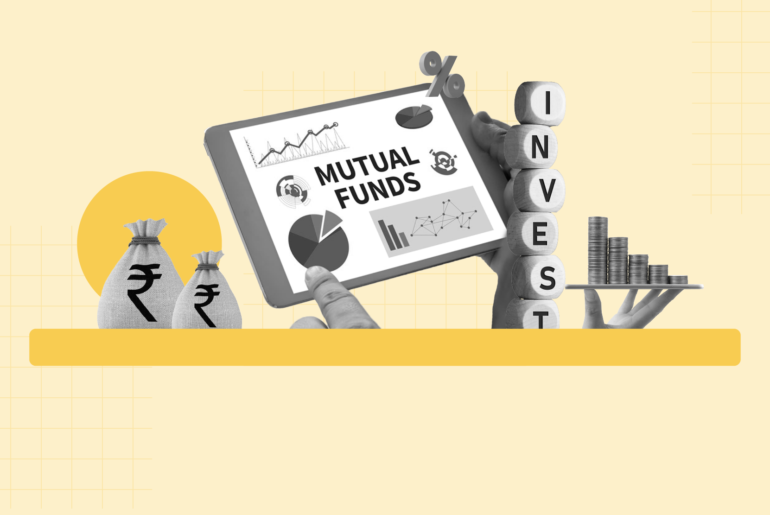Last Updated on May 25, 2022 by Neera Bhardwaj
The mutual fund industry has been actively creating a combination of investment strategies and products to cater to different needs and risk appetites of investors. One such offering of the industry is income funds.
Income funds focus on generating consistent and regular returns for investors by way of dividends or interest through investing in fixed income instruments, money market instruments, and certificates of deposit. Let’s deep dive to understand this product, who can invest and what are the trade-offs.
Table of Contents
What are income funds?
An income fund is a type of mutual fund scheme that focuses on providing a regular source of returns for the investors by investing a significant portion of the pooled investor capital in fixed income securities. Standard investment vehicles under income funds consist of government securities, corporate bonds, debentures, and money market instruments, among others. The investment in income funds should preferably be held for longer durations to benefit from it and it is generally not for short-term investors.
Income funds emphasize on current income and have an overall low-risk factor. The focus is on current income and preservation of capital, instead of capital gains or quick appreciation.
The idea of an income fund is that it has the capacity to generate returns irrespective of the interest rate mechanism. Hence, income fund managers will work towards generating income from interest by holding debt instruments until maturity and earning gains by selling debt instruments in the market when their price increases.
These funds are highly liquid and offer greater flexibility to investors for redemption and withdrawal than fixed income instruments.
Types of income funds
Money market funds
Money market funds are income funds that invest the pool of investor’s money in a certificate of deposits, short-term treasury bills, or commercial papers – basically, money market instruments that are short-term liquid investments. Generally, this type of income fund is low-risk and low-cost. However, the return yield is also low. The concept is to invest in short-term assets that can be converted into returns at the lowest cost.
Bond funds
Corporates and the Government can issue bonds that pay annual interest to the investor. Although the interest yield of a government bond is low, they tend to be much safer with zero to marginal risk compared to corporate bonds, which offer high interest but involve a substantial amount of risk.
Equity income funds
Equity income funds are a slightly different kind of funds that invest in high-dividend-paying stocks. It aims to generate steady monthly income for investors from the dividends announced by companies. Note here that these are equity-oriented funds and not debt-oriented funds. The risk is higher due to the direct exposure to the stock markets.
What to watch out for when investing in income funds?
- Risk factor
A debt fund comes with fewer risks, irrespective of the type of fund it is. However, they are not risk-free. Income funds carry both credit risk and an interest risk. Bond prices could fall severely if the interest rates go up. Similarly, should the issuer of the bond falter on payments, investors stand to lose their capital. - Investment horizon
Investors who have an investment horizon of at least 3-4 yrs may find income funds suitable for them. Fixed income products are generally low yield, and therefore, a longer term will help accumulate wealth. Income funds might not be the right choice for short-term investors. - Expense ratio
The expense ratio is the total fees that a fund house charges for managing the fund and its assets. Ideally, investors must look for income funds with a low expense ratio to ensure high returns.
Benefits of income funds
High liquidity
Income funds come with no lock-in periods, and hence withdrawing the funds is relatively easy compared to fixed deposits. However, some funds might have exit load fees for early withdrawal.
Stable income
Investors prefer income funds for the stability of returns they offer. They generate regular income along with being low-risk investment avenues.
Higher returns than FDs
These funds are a great way of getting a higher return on your investment than direct investment in fixed income products, even in times when interest rates fall.
Diversification of portfolio
When you invest in fixed income products, you are subscribing to only one investment. However, an income fund spreads the risk across a variety of fixed income products and fetches cumulative returns from the space to add to your portfolio.
How to invest in income funds?
Income funds are essentially a type of mutual fund or an ETF. Just like with investing in mutual funds, it is important first to research the income funds end-to-end. Understand its investment strategy, who manages it, how its track record has been, and how high or low the expense ratio is.
Investment in income funds can be done digitally by opening an account on a trading platform. This can be with a broker, a mutual fund distributor or with the mutual fund house directly. The investor will then have the option of choosing the lump-sum model or the SIP model of investment in the income fund of their choice. The same KYC documentation that applies when investing in mutual funds and ETFs apply to income fund investing too.
Who should invest in income funds?
Since income funds compensate the investor monthly or quarterly, these are best fit for individuals looking for a steady and regular income. Investors with a low to moderate risk profile can also consider income funds to get returns. New investors wanting to enter the mutual fund space may mull over investing in income funds. It is important to note that income funds are generally low yield and potential income fund investors must have at least 4 yrs of investment horizon.
The characteristics of income funds are most relevant to retired individuals or those nearing retirement who may look to protect their investment from volatility and risk while growing wealth.
Bottom line
Income funds are an alternative method of generating passive income in the market and can serve as an excellent retirement strategy. They are low-risk investments that focus on slow capital appreciation over time, and are a consistent source of income.




